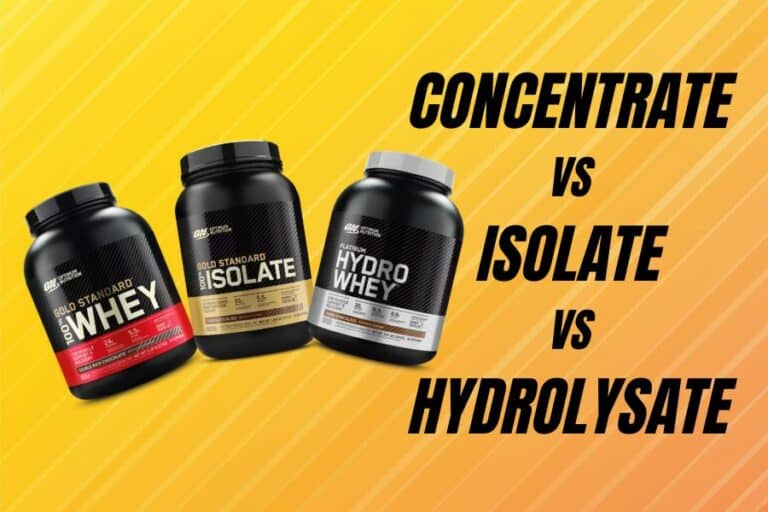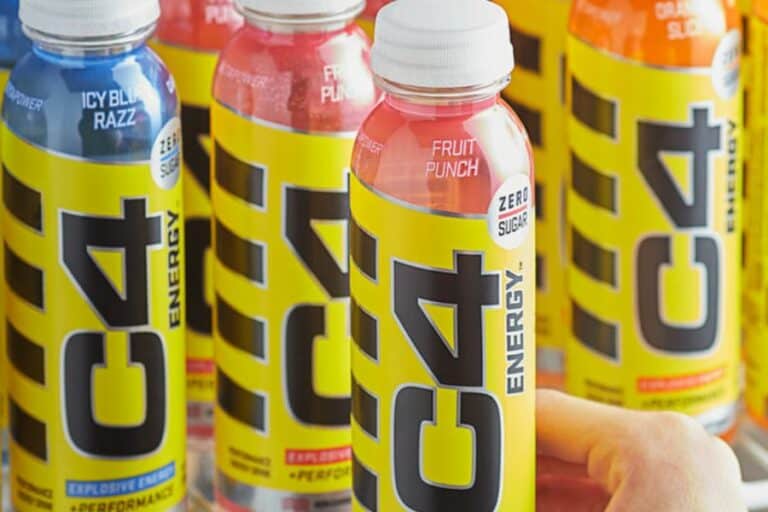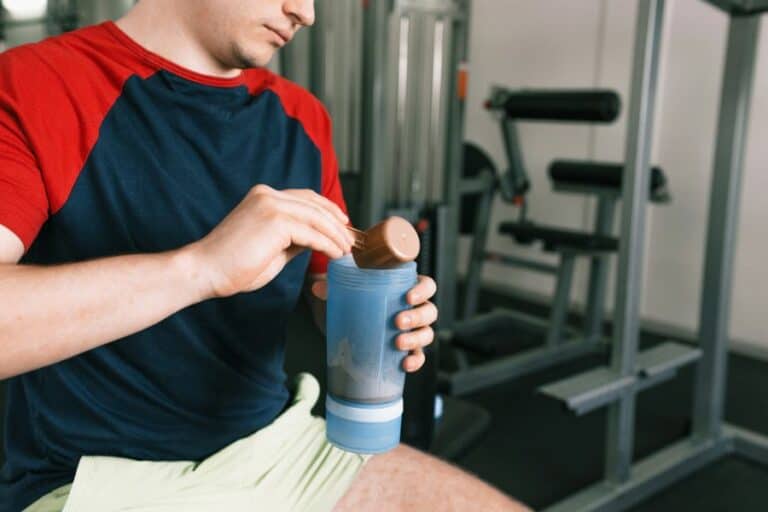Beyond Creatine: List of Top 10 Creatine Alternatives

Muscle-building Creatine alternatives | athletic performance creatine alternatives | Increased Focus Creatine Alternatives | Nitric oxide supplements Creatine Alternatives | Creatine Overview | How to choose
Creatine supplementation has gained immense popularity in the fitness industry as a means to enhance athletic performance and muscle building.
Nevertheless, some individuals may prefer to explore alternatives to creatine due to personal preferences, health considerations, or specific fitness goals.
In this article, we will explore a range of scientifically supported creatine alternatives that can be incorporated into your fitness regimen.
List of best creatine alternatives
Creatine is a well-known supplement used to increase muscle strength and size, as well as improve anaerobic endurance [1]PubMed: Creatine supplementation enhances anaerobic ATP synthesis during a single 10 sec maximal handgrip exercise.
However, some may need an alternative to this ballistic power booster of a muscle-building supplement. The reasons for this may vary from person to person based on dietary compulsions (like veganism), allergies, fitness goals, or just personal preference.
We have put together 10 of the very best alternatives to creatine supplements and sorted them on the basis of the expected benefits from these alternatives.
I. Muscle-building alternatives to creatine supplements
Creatine is well-known for its ability to promote muscle growth and improve strength. If you are looking for alternatives to support muscle building, consider the following options:
1. Branched-Chain Amino Acids (BCAA supplements)
BCAAs consist of three essential amino acids [2]ScienceDirect: Branched-Chain Amino Acid, namely leucine, isoleucine, and valine. These amino acids play a crucial role in protein synthesis, which is essential for muscle growth and recovery.
BCAAs can also help reduce muscle fatigue during exercise, allowing you to train at a higher intensity for longer periods.
2. HMB (Beta-Hydroxy Beta-Methylbutyrate)
HMB is a metabolite of the essential amino acid leucine. It has been shown to enhance muscle protein synthesis, reduce muscle protein breakdown, and improve recovery.
HMB supplementation is particularly beneficial for individuals engaged in resistance training or high-intensity exercise(HIIT).
3. Whey protein powder
Whey protein is a complete protein source rich in essential amino acids, including high levels of leucine. It is easily absorbed by the body and can effectively support muscle growth and repair.
Whey protein supplementation is commonly used by athletes and bodybuilders to optimize muscle recovery and enhance muscle protein synthesis.
II. Creatine alternatives for better athletic performance
Athletes often seek ways to improve their performance and endurance. Here are some creatine alternatives that have been shown to enhance athletic performance:
4. Glutamine
Glutamine is a non-essential amino acid that plays a vital role in muscle function and recovery. It helps maintain optimal immune function and can reduce exercise-induced muscle damage.
Glutamine supplementation has been shown to enhance athletic performance, particularly during prolonged endurance activities.
5. Carnitine
Carnitine is involved in energy metabolism, specifically the transport of fatty acids into the mitochondria for energy production.
Supplementing with carnitine can increase the use of fat as a fuel source during exercise, which may improve endurance and reduce fatigue.
6. Tyrosine
Tyrosine is a precursor to important neurotransmitters in the brain, such as dopamine and norepinephrine. It has been suggested that tyrosine supplementation can enhance cognitive function and focus [3]PubMed: Effect of tyrosine supplementation on clinical and healthy populations under stress or cognitive demands–A review, particularly during prolonged exercise or mentally demanding tasks.
III. Alternative supplements for increased focus
For individuals seeking improved focus and mental clarity, the following supplement may be beneficial:
7. Caffeine supplements
Caffeine is a well-known stimulant that can increase alertness, focus, and overall cognitive performance. It stimulates the central nervous system and promotes the release of neurotransmitters such as dopamine and norepinephrine, leading to enhanced mental alertness and concentration.
IV. Nitric oxide supplements
Nitric oxide (NO) is a vasodilator that helps relax and widen blood vessels, thereby improving blood flow and nutrient delivery to muscles. The following supplements are known to enhance NO production:
8. Beta-Alanine
Beta-alanine is an amino acid that combines with histidine to form carnosine, a dipeptide found in muscle tissue. Carnosine acts as a buffer against lactic acid buildup during high-intensity exercise, delaying the onset of fatigue and improving performance.
9. L Arginine
L-arginine is an amino acid that serves as a precursor to nitric oxide production in the body. By increasing nitric oxide levels, L-arginine promotes vasodilation and improves blood flow, which can enhance athletic performance and muscle pump during workouts.
10. L-Citrulline
L-citrulline is another amino acid that plays a key role in nitric oxide synthesis. It is converted into L-arginine in the body, leading to increased nitric oxide production. L-citrulline supplementation has been shown to improve exercise performance, reduce fatigue, and enhance post-workout recovery.
Creatine Overview
Creatine [4]Cleveland Clinic: Creatine is a naturally occurring compound found in small amounts in red meat and fish. But it is not just an exogenous compound (found out of the body). It is also synthesized in the human body in the liver, kidneys, and pancreas. It is also found in small amounts in the brain.
Creatine plays a critical role in the production of adenosine triphosphate (ATP) [5]Science Direct: Creatine Phosphate, the primary energy source for muscle contractions.
When creatine is consumed or supplemented, it increases the intracellular levels of phosphocreatine, which can then be used to regenerate ATP during high-intensity exercise.
For all these reasons, creatine is widely used as a supplement to improve strength, muscle growth, and athletic performance.
Natural creatine
Natural sources of creatine include red meat, poultry, and fish. However, the amount of creatine obtained through dietary sources may not be sufficient to fully saturate muscle stores. Vegetarians and vegans may have lower creatine levels due to the absence of animal products in their diet.
Artificial creatine supplementation
Creatine supplements are widely available and commonly used by athletes, bodybuilders, and individuals involved in high-intensity exercise.
The most common form of creatine supplement is creatine monohydrate, which has been extensively researched and proven to be safe and effective. Other forms include creatine ethyl ester, creatine hydrochloride, and buffered creatine.
Choosing the right creatine alternative
When considering creatine alternatives, it is important to align them with your individual fitness goals, training/workout program, pre-existing health conditions, and potential interactions with other supplements or medications.
1. Individual fitness goals
Different supplements serve different fitness goals. For example, if your primary aim is muscle building, alternatives like BCAA supplements, HMB, and whey protein powder may be suitable choices. On the other hand, if you are primarily focused on improving athletic performance, options such as glutamine, carnitine, and tyrosine may be more beneficial.
2. Training/workout program
The type of exercise or physical activity you engage in can influence your choice of supplements. For instance, endurance athletes may benefit from glutamine supplementation to support their prolonged exercise sessions, while strength athletes may find beta-alanine and creatine-based supplements useful for increasing their muscle energy during short-burst, intense weightlifting sessions.
3. Pre-existing health conditions
Certain health conditions may require caution or the avoidance of specific types of supplements. For example, individuals with kidney disease or impaired kidney function should consult with a healthcare professional before using creatine or creatine alternatives. Similarly, those with cardiovascular conditions should be cautious when using nitric oxide-boosting supplements.
4. Potential interactions with other supplements or medications
It is important to consider potential interactions between supplements and medications you may be taking. For example, caffeine supplements may interact with certain medications or exacerbate pre-existing conditions like anxiety or high blood pressure. Always consult with a healthcare professional or pharmacist to ensure safe and appropriate supplement use.
Conclusion
Although creatine supplementation is popular for improving muscle building, enhancing athletic performance, and increasing mental focus. However, other effective alternatives can also aid in achieving these goals.
The choice of a creatine alternative should be based on the above-mentioned factors. This way, individuals can make informed decisions to customize their supplementation and optimize their fitness journey.
References
| ↑1 | PubMed: Creatine supplementation enhances anaerobic ATP synthesis during a single 10 sec maximal handgrip exercise |
|---|---|
| ↑2 | ScienceDirect: Branched-Chain Amino Acid |
| ↑3 | PubMed: Effect of tyrosine supplementation on clinical and healthy populations under stress or cognitive demands–A review |
| ↑4 | Cleveland Clinic: Creatine |
| ↑5 | Science Direct: Creatine Phosphate |







